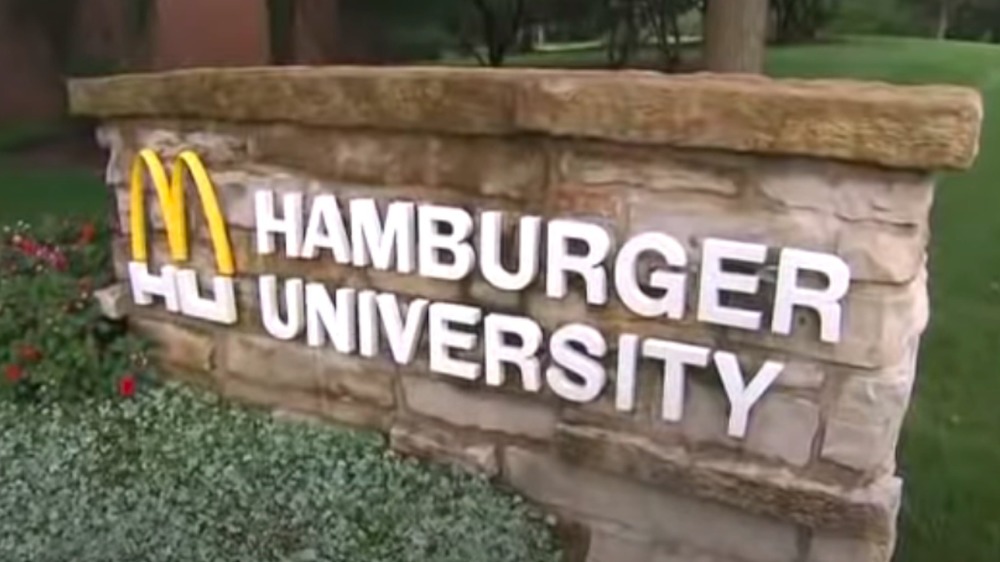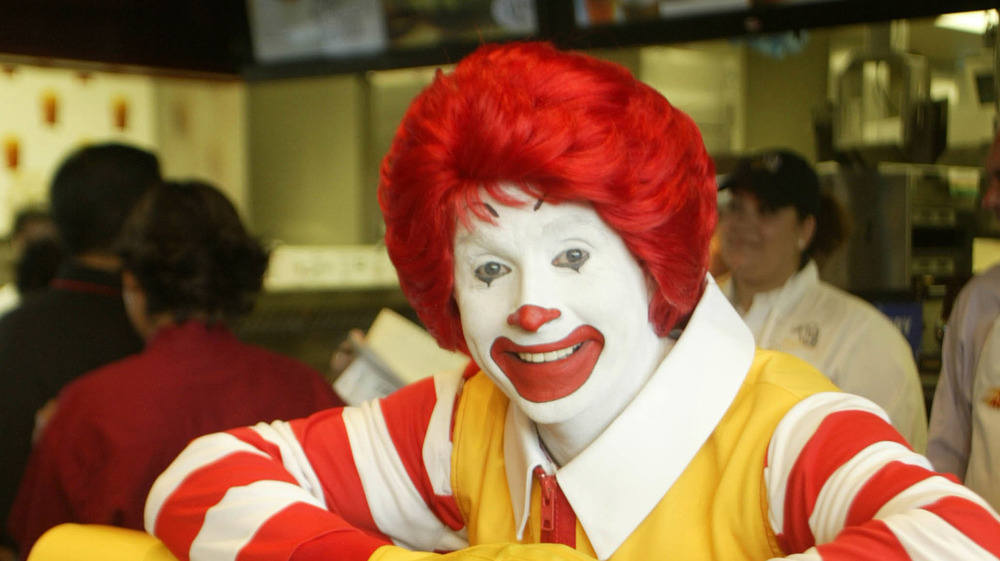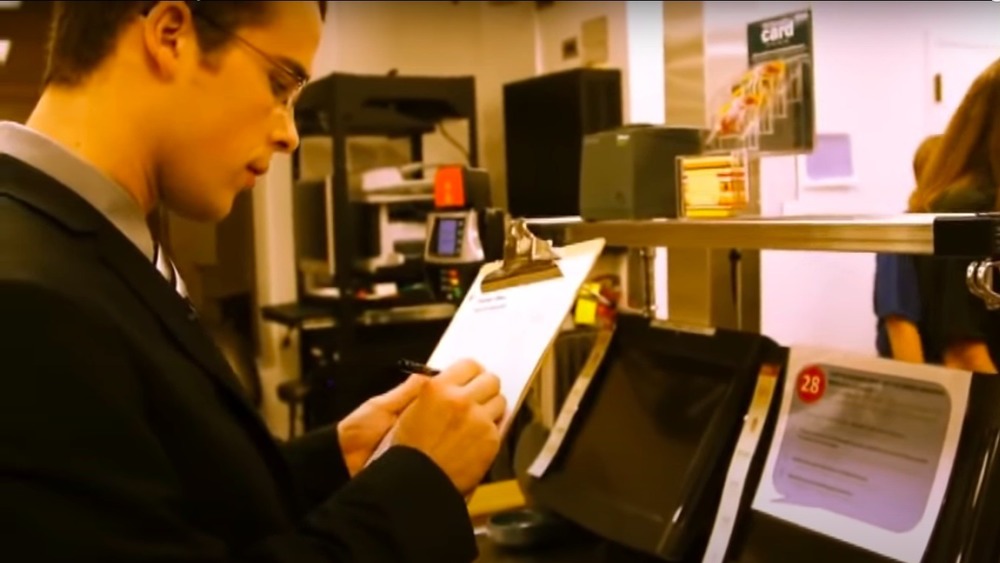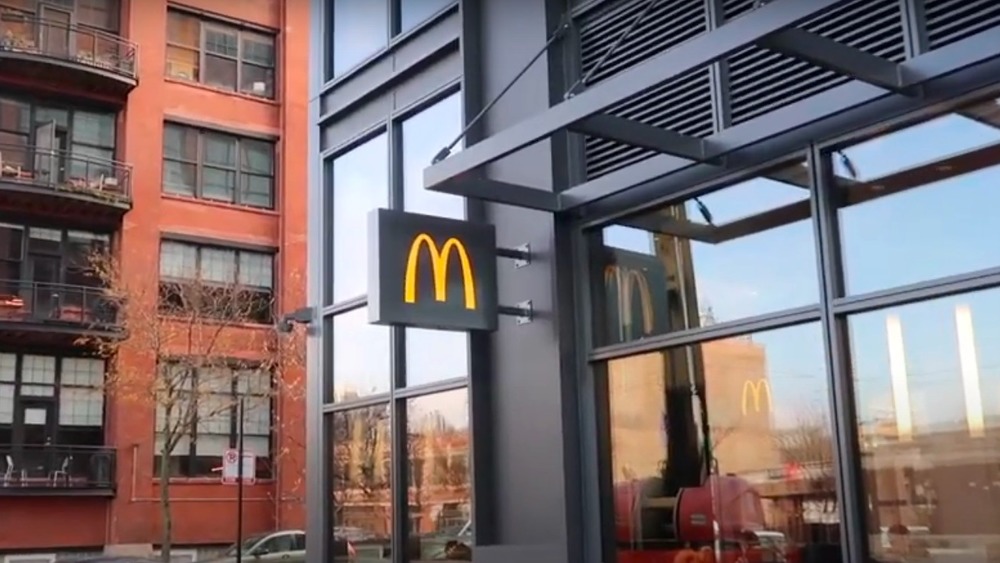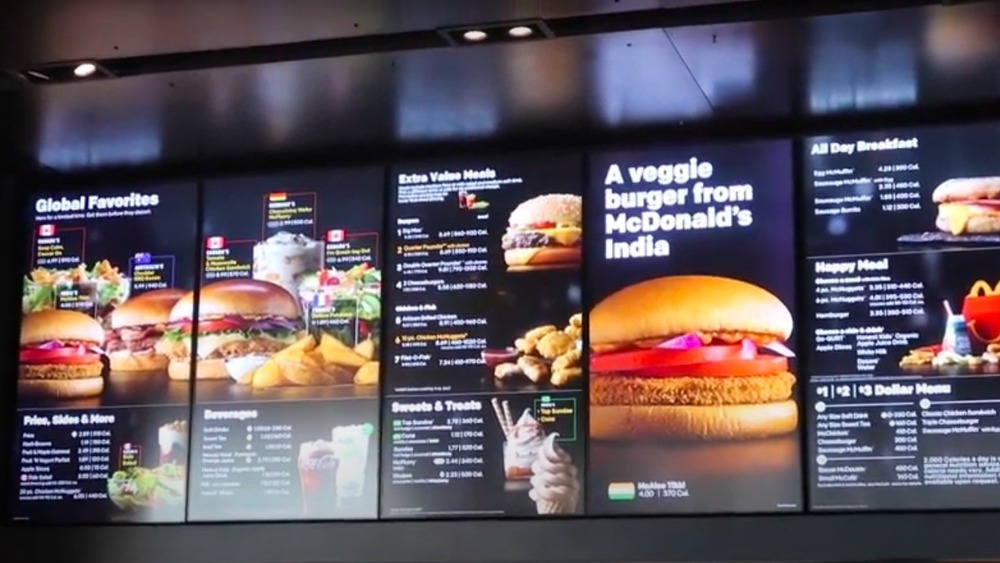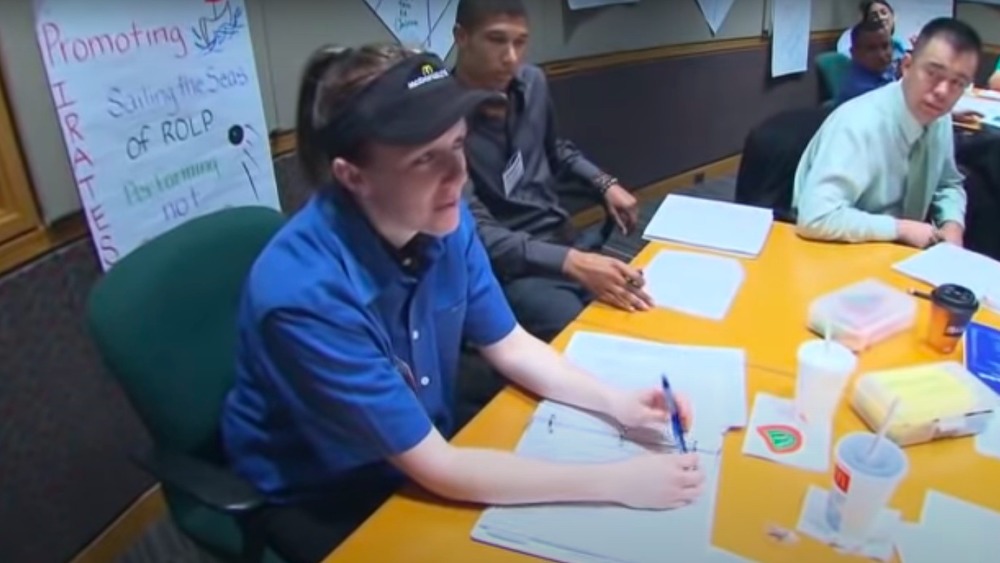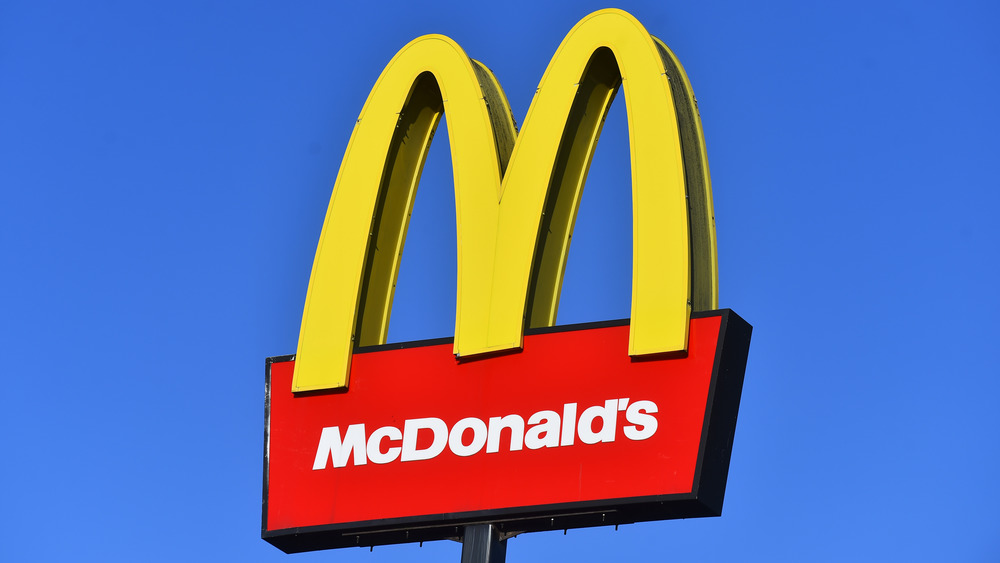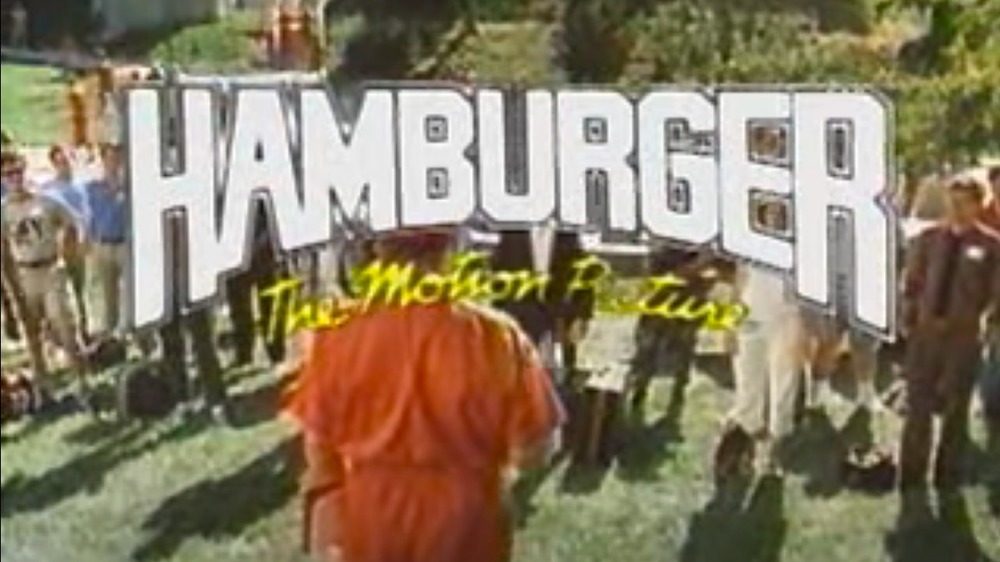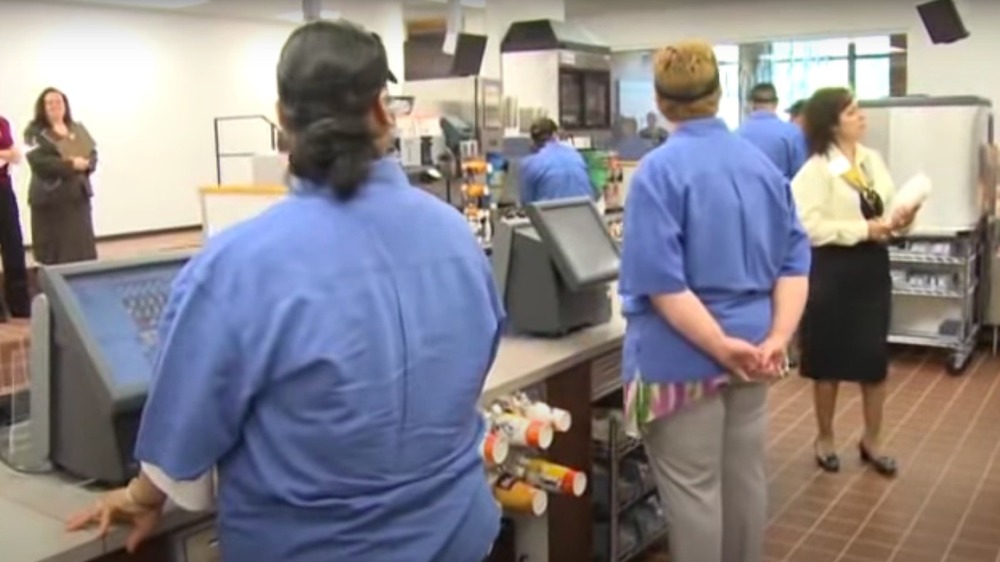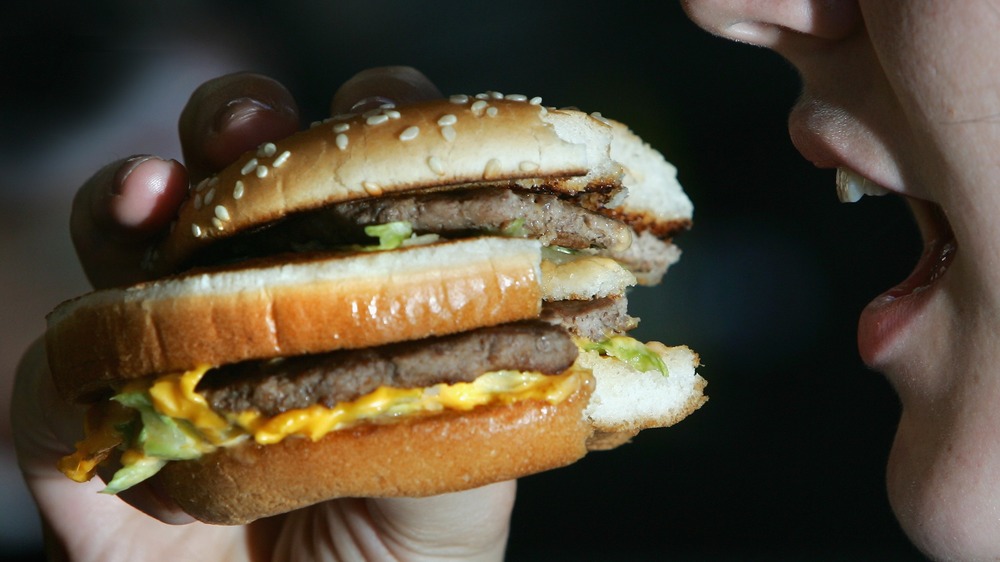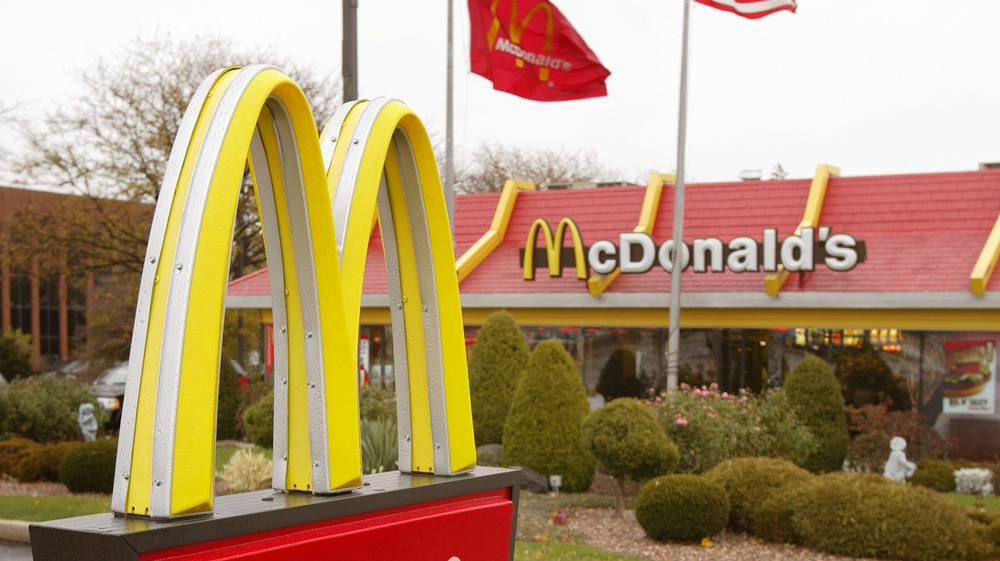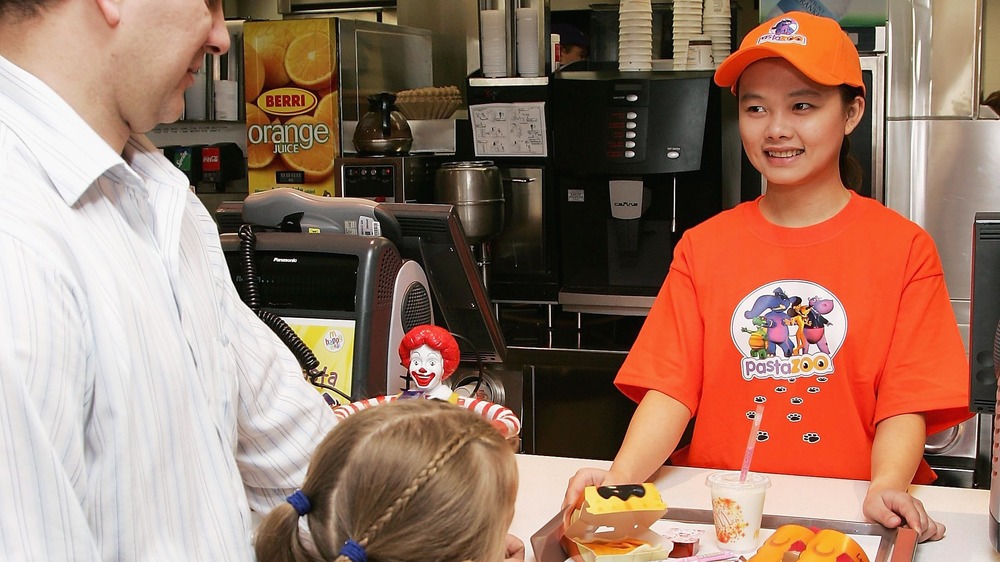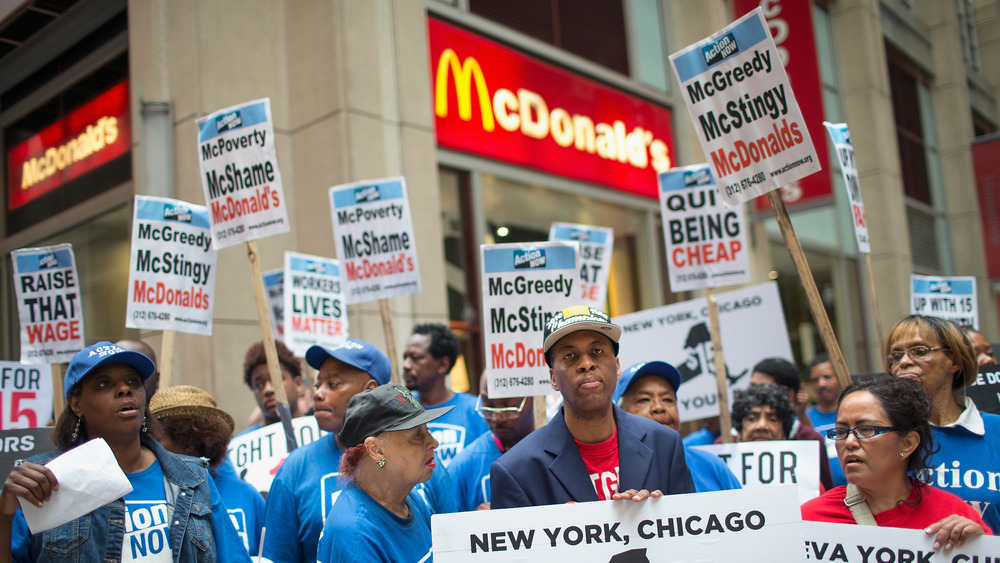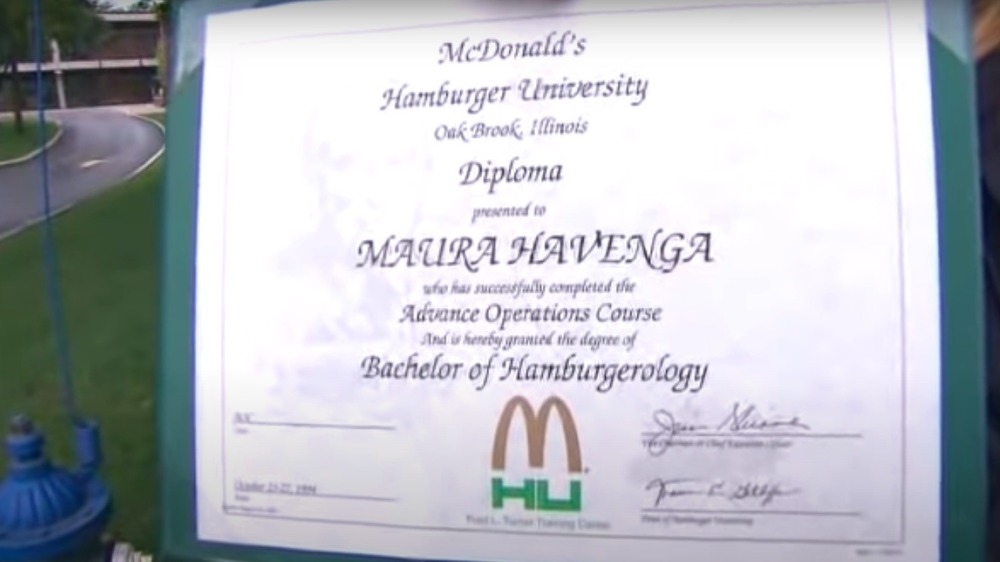The Untold Truth Of McDonald's Hamburger University
McDonald's didn't become the world's biggest fast food chain by accident. Behind those decades of success lies plenty of innovation and outside-the-box corporate strategy, characteristics that have defined the chain since the first McDonald's opened in the late 1940s.
Arguably one of the most important innovations behind the worldwide expansion of McDonald's that followed has been McDonald's Hamburger University. What began as a small training seminar held within a McDonald's location in the early 1960s has grown to become the gold standard of corporate training facilities, headquartered in a sprawling campus outside Chicago. And while some may snicker about graduates coming away with a "Bachelor of Hamburgerology," there's a lot more to Hamburger U than learning how to make the perfect Big Mac. In fact, those who've trained at the Chicago-area campus or one of the numerous Hamburger University satellite locations throughout the world gain invaluable experience designed to help them rise up within the corporate ranks.
There's a lot that the average person may not realize about this unique training program. Read on to discover the untold truth of McDonald's Hamburger University.
McDonald's Hamburger University has been around since the early '60s
From its humble origins in the early '60s, McDonald's Hamburger University has grown to become a groundbreaking educational facility that's changed the game for American fast food. According to The Best Schools, Hamburger U was founded in 1961 by Fred L. Turner, a former McDonald's fry cook who ascended the ranks to become McDonald's manager of operations. As the Chicago Tribune recalled, the first Hamburger University graduating class consisted of just 15 students, with classes held in the basement of a McDonald's restaurant in Elk Grove Village, Illinois.
From that tiny little burger-flipping acorn grew a giant tree; in 1983, the $40-million Hamburger University campus opened its doors, a sprawling facility located on 80 acres in Oak Brook, Illinois. That campus, noted Business Insider, "includes 17 teaching rooms, three kitchen labs, a 300-seat auditorium, and eight interactive-education team rooms."
Also part of Hamburger University is "Heritage Hall," a museum exhibit devoted to the history of McDonald's. Among the memorabilia on display in the "golden archives" is the original clown suit worn by the very first Ronald McDonald.
McDonald's Hamburger University is about a lot more than burgers
It would be understandable to assume that the lessons students learn at McDonald's Hamburger University are focused on creating uniform burgers and cooking techniques. That, however, is only a small part of the curriculum. According to a report on the facility from Bloomberg Quicktakes, this is where future McDonald's managers and franchise owners are taught everything necessary to run a successful McDonald's franchise operation. "If we're going to go anywhere, we've got to have some talent, and I'm gonna put my money into talent," said legendary McDonald's chief Ray Kroc in a vintage interview.
That philosophy has guided Hamburger University since the beginning, and Hamburger University's goal is to hone and shape that talent. As Bloomberg Quicktakes pointed out, "Hamburger U is not a cooking school." Rather, the goal is to give managers the business acumen needed to run a restaurant that, on average, rakes in about $2.6 million in revenue. "They have to think bigger picture," explained Hamburger U professor Rochelle Tandy. "A lot of times we get bogged down in the day-to-details. It's about the big, big picture and really diagnosing the situation to make it better."
There are McDonald's Hamburger University locations all over the world
Not only did McDonald's Hamburger University evolve far beyond its humble beginnings in a restaurant basement, the concept has also expanded into other parts of the world. In fact, a 2011 article in Bloomberg listed the various international Hamburger University campuses, including one in Tokyo (which is housed within a skyscraper) that opened in 1972, and another in Munich, launched in 1982. Additionally, in 2010, McDonald's opened a 28-storey Hamburger University in the Chinese city of Shanghai. In its first year of operation, the Shanghai Hamburger U trained 1,000 out of about 70,000 McDonald's employees in mainland China. Furthermore, as noted by Mirror, there are also Hamburger University campuses in London, Sydney, São Paulo, and Moscow.
Joel Silverstein, president of Hong Kong-based restaurant consultants East West Hospitality Group Ltd., explained the rationale behind opening up all those international campuses. "It's getting harder and harder to hire employees in the food-service business," Siverlstein shared. "The main reason that McDonald's put up the Hamburger University is to professionalize the sector, making it easier to recruit better people."
Students earn an honorary Bachelor of Hamburgerology from McDonald's Hamburger University
Students who complete the training at McDonald's Hamburger University take home more than just invaluable knowledge about running a fast food franchise. They also come away from the experience with a "Bachelor of Hamburgerology" diploma. And while some may joke about graduating from Hamburger University, the philosophy behind those degrees is dead serious. "If you think about it, each of them is running a multimillion-dollar business," Rob Lauber, vice president and chief learning officer of McDonald's Restaurant Solutions Group, told the Chicago Tribune of Hamburger U graduates. "So we want to make sure they have good business grounding."
So how does one earn a Bachelor of Hamburgerology? Students are graded on how they respond in simulations of actual scenarios that would take place within a restaurant, in addition to a putting together a group presentation given at the end of the course. Anyone who manages to score above 90 percent earns a coveted position on the dean's list — along with a gold seal on that diploma; on average, just 10 percent of students make it onto the dean's list.
Studying at McDonald's Hamburger University can be used as college credits
In addition to those Hamburgerology degrees, studying at McDonald's Hamburger University can also count toward college credits. As CNN reported, McDonald's employees who study at Hamburger U "can earn up to 23 credits toward associate or bachelor degrees." Meanwhile, those on a higher rung of McDonald's corporate ladder can earn up to 27 credits.
Enterprising employees have taken the opportunity to advance their educations, using Hamburger U as a springboard. For example, CNN pointed to Shelly Hicks, who was the manager of a Nashville-area McDonald's; she used her McDonald's University credits as a springboard to get a business degree, and ultimately a master's degree in adult education. She's not alone; according to Kevin Clark, who leads McDonald's education program, 350 of the 5,000 managers who study at Hamburger University each year go on to "take the extra step" of getting their McDonald's U transcripts approved in order to use them toward earning a college degree.
Hicks has come full circle in her journey through higher education; after earning her degree, she's now one of 16 "professors" training employees at the Oak Brook campus of Hamburger University.
Attending McDonald's Hamburger University can be tougher than getting into Harvard
Being accepted as a student at McDonald's Hamburger University isn't easy. As Bloomberg reported, this is particularly true of the Chinese Hamburger U in Shanghai, where the acceptance rate of applicants is a mere one percent. Meanwhile, Britain's Mirror noted that the London Hamburger U only accepts eight out of every 1,000 applicants, an even lower percentage. When compared to Harvard University (with an acceptance rate of about seven percent) and Oxford University (18 percent), Hamburger University is far tougher to get into than both of those storied bastions of higher education.
That competitiveness makes sense when considering the role Hamburger University can play in propelling its students up the company's ranks. Peter Jankovskis, co-chief investment officer of Oakbrook Investments LLC (which owns approximately 300,000 shares of McDonald's stock), said, "It's certainly possible to move up through the hierarchy. Many people do consider fast food in general is kind of a dead end, but in the case of McDonald's, they have a very strong professional organization."
Case in point: Bloomberg notes that former McDonald's CEO Jim Skinner started out as a management trainee in 1971; in 2009, he earned $17.6 million.
McDonald's Hamburger University boasts hundreds of thousands of graduates
That first graduating class of McDonald's Hamburger University may have only had 15 students, but those numbers have exploded, especially after all those international campuses sprang up in far-flung parts of the world. As the Chicago Tribune reported in 2015, by that point more than 330,000 people worldwide had taken courses at Hamburger U.
For many of the thousands upon thousands of McDonald's employees to seek training at Hamburger U, it marks their first experience with higher education. "We estimate between 20 and 30 percent of our restaurant managers haven't finished high school," said Rob Lauber, vice president and chief learning officer of McDonald's Restaurant Solutions Group, who also oversees Hamburger University.
Additionally, the way that education has been imparted to students at Hamburger University has changed significantly over the years. According to Bill Mitchell, dean of the flagship Hamburger University in Oak Brook, classes used to primarily consist of lectures, but have since evolved to incorporate a lot more team exercises.
McDonald's Hamburger University inspired a 1986 comedy movie
McDonald's Hamburger University has not only provided opportunities and education to thousands of the company's employees over the years, it's also served as the inspiration for a movie: the 1986 cult comedy Hamburger: The Motion Picture. As a synopsis on the website of the British Film Institute makes clear, the name "McDonald's" is never used, but it's not much of a stretch to see where the idea for the film originated. "A gang of teenagers are trying to graduate from a 12-week course at Busterburger University, a school for those who wish to learn about fast food," the synopsis stated. "The final test is to run a fast food outlet for the public, which causes mayhem."
Described as a "great bad movie" by Reel Rundown, Hamburger: The Motion Picture didn't exactly sweep the Oscars. It did, however, boast a cast that can generously be described as eclectic. As IMDb noted, Leigh McCloskey (who subsequently found success in various soaps, including The Young and the Restless) starred, alongside Chuck McCann (who earned his Z-movie cred in Attack of the Killer Tomatoes), NFL great Dick Butkus, and Sandy Hackett, progeny of comedian Buddy Hackett.
Burgers aren't the only things that get grilled at McDonald's Hamburger University
Students at McDonald's Hamburger University who expected to sail through with minimal effort no doubt received a big wake-up call when they actually began their studies. As the Chicago Tribune reported, students are put through their paces in courses such as "shift management, introduction to management, and guest services before they get to the session known as GM Capstone." Training magazine described that grand finale, GM Capstone, as an intensive five-day simulation to train McDonald's general managers, designed to help them "learn to think and perform in ways that improve their restaurant's performance."
"At the staff level, our performance development system is based on performance drivers considered key to leadership, with training and performance reviews aligned around eight leadership competencies and expected behaviors for each level," McDonald's vice president of U.S. training Diana Thomas explained. "Individual development plans, created in collaboration with the boss, map out leadership training in support of one's performance and career goals."
Training at McDonald's Hamburger University gets pretty intense
Anyone who believes that McDonald's Hamburger University is a walk in the park will be surprised by the level of difficulty posed by the curriculum. According to a report on Hamburger U by the Chicago Tribune, training can be "intense." In fact, each Hamburger University is equipped with a down-to-the-last-detail simulation of an actual McDonald's restaurant. Students are tasked with doing a walkthrough in order to spot deficiencies, with the Tribune listing such examples as boxes of McDonald's French fries stacked on a floor (they're supposed to be stored in a freezer) and a salt shaker next to the deep fryer that had no salt in it.
One student who excelled at Hamburger University is Richard Tutor of Marquette, Michigan. According to The Mining Journal, he earned Hamburger University's highest academic achievement, the Fred Turner Award, presented to the student in each graduating class to achieve the highest grades in all courses.
As Tutor told the newspaper, the training he received at Hamburger University helped him "not only professionally, but personally." The experience at Hamburger U, led him to learn "more about myself than I did about McDonald's."
Owners of a McDonalds franchise are expected to put in some serious time at Hamburger University
McDonald's Hamburger University isn't just a resource that the fast-food chain's franchise owners can take advantage of — it's actually mandatory. According to Franchise Business Review, owners are required "to spend 12 to 18 months learning the ropes."
Of course, that doesn't mean that franchise owners have to spend a full year at Hamburger University; a number of the courses can actually be completed online, on a part-time basis. However, owners are required to be "fully trained in its core Restaurant Leadership Curriculum" before being able to actually "own and operate" a McDonald's restaurant. The costs of all that study, however, aren't paid by the owner; McDonald's itself absorbs the training costs.
However, owning a McDonald's franchise is not an inexpensive proposition. As Franchise Business Review explained, an owner's initial investment will typically range between $1.263 million to $2.235 million, which includes a one-time franchise fee of $45,000. For that, the owner will receive four percent of the restaurant's total gross sales.
Traditional educators can learn a thing or two from McDonald's Hamburger University
It's no secret that McDonald's Hamburger University is not your typical educational institution. However, its relatively brief history has been one characterized by innovation, evolution, and the execution of bold new ideas. According to Donna Kidwell, chief technology officer of Arizona State University's EdPlus, there are some lessons that traditional educators can learn from Hamburger University and its training techniques. "If you buy a franchise, you're essentially taking on a business model. That's what you're actually getting," Kidwell explained in an interview for EdSurge. "You're adopting their practices."
In fact, Kidwell's own participation in a corporate training program similar to Hamburger University led her to realize "how extremely powerful it was to have well-thought-out educational experiences. Not just training, but educational experiences that were relevant and that someone could then immediately use — and how that made them hungry to come back."
McDonald's Hamburger University was the site of a protest resulting in mass arrests
McDonald's Hamburger University has won much acclaim, yet it's occasionally been associated with controversy. In 2014, according to Bloomberg, a crowd of protesters (estimated at numbering between 1,000 and 1,500) assembled at Hamburger University's campus in Oak Brook, Illinois. The mob — which included 325 McDonald's employees in their uniforms — "stormed through the company's campus entrance."
The protesters were demanding to form a union, as well as a wage increase to $15 per hour. As McDonald's employee Melinda Topel explained, she was earning a measly $7.50 an hour, and had travelled from Kansas to participate in the protest. "We deserve a livable wage," she said, noting that she relies on government assistance to get by.
The protest was ultimately halted by police in riot gear, with more than 100 protesters placed under arrest. "We respect the right to protest, to peacefully protest. And I think that's what you saw here today," Heidi Barker, McDonald's spokesperson, told Chicago's ABC 7 Eyewitness News. "When it comes to the minimum wage, that's a national discussion. It's not a McDonald's issue, it's an economic issue. We'll look to the folks in Washington to determine what happens."
One McDonald's Hamburger University grad was forced to defend her degree
Graduates of McDonald's Hamburger University receive a "Bachelor of Hamburgerology" diploma at the end of their two weeks of intensive training. What precisely that means was at the center of a controversy involving Diana LaPorta during her 1996 run for a spot on the school board of Florida's Volusia County. LaPorta had landed in hot water with the local media over claims she was misrepresenting her education by claiming to hold a "bachelor's degree in business administration" from Hamburger University. "It says bachelor's degree on the diploma, and that's what I told you," she declared in an interview with the Orlando Sentinel. "Let's not make this nonissue into something it isn't."
LaPorta's claim didn't receive a whole lot of support from Hamburger University's former dean, Hal Theis. He told the Sentinel that characterizing her Hamburgerology degree in the manner that she did was somewhat disingenuous. "It's a bit misleading that she would say it that way," Theis said. "And that's the polite way to put it."
